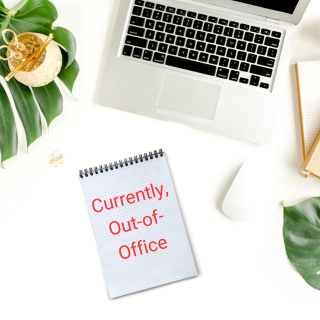Being a lawyer is demanding, with long hours, high-pressure situations, and constant deadlines. While dedication to your work is a strength, it’s crucial to remember that your brain and body need breaks. Neglecting your well-being has adverse consequences for your health, relationships, and performance.
The Struggle is Real
It’s no secret why lawyers struggle to leave work at work. The pressure to constantly be available, the fear of missing an important update, and the ever-present looming deadlines can make it difficult to switch off from your work. But neglecting to disconnect has significant downsides. Burnout, stress, and decreased productivity are just a few of the potential consequences of failing to separate work from personal life.
So, how can you, as a lawyer, overcome these challenges and successfully leave work at work? Here are some practical tips:
1. Set Boundaries
Disconnecting from work effectively requires intentional effort. Setting clear boundaries between work hours and personal time is necessary to give your brain a break. Define your work hours and stick to them as much as possible. Communicate these boundaries to colleagues and clients alike. Utilize features like auto-responders on emails to inform them about your availability outside work hours.
2. Create Your End of the Workday Rituals
At the end of the day have a routine or ritual that can help you transition into your personal time and support you for the next workday. You can make your next day easier by leaving yourself a note about what will be the first priority for tomorrow. Organize your space so that tomorrow you have a clean desk at the beginning of your day. If you work at home, go for a walk around the block to mark the end of your day.
3. Unplug
Your phone can be a double-edged sword. While it can facilitate connection and productivity, it can also be a constant source of work-related stress. Consider turning off work notifications on your phone and computer during personal time. This simple step can significantly reduce the temptation to check work emails or messages outside of designated work hours.
Avoid checking work messages or taking calls during personal time. Consider turning off work notifications on your phone and computer during personal time to avoid the constant temptation to check emails or messages.
4. Create a Designated Workspace at Home
Physically separating yourself from work can significantly help you to disconnect mentally. If you are still working from home, designate a specific area in your home as your work zone, the rest of your home is your work-free zone. Avoid checking work emails, calls, or messages outside your workspace.
5. Develop Healthy Relaxation Habits and Routines
Engage in activities that promote relaxation and stress relief outside of work. Exercise, pursuing hobbies, spending time with loved ones, and practicing mindfulness can all be helpful. Prioritize sleep hygiene by establishing a consistent sleep schedule and creating a relaxing bedtime routine.
6. Utilize Technology to Manage Work
Leverage tools and apps to manage your workload effectively. Utilize tools and apps designed for task management to stay organized and avoid feeling overwhelmed. Use the power of technology to manage your workload and schedule downtime reminders.
7. Seek Support
Don’t be afraid to seek support. Open communication with colleagues and supervisors about your workload and concerns can help alleviate some of the pressure. Many organizations also offer resources for managing stress and promoting well-being, such as employee assistance programs or mindfulness training opportunities. Utilizing these resources is not a sign of weakness; it demonstrates your commitment to your well-being and overall success.
Leaving work at work is not a luxury; it’s a necessity. Prioritizing work-life balance benefits you both personally and professionally. By prioritizing work-life balance and incorporating these practical tips, you can create a more sustainable and fulfilling career path. Remember, a well-rested and balanced lawyer is a more effective and successful lawyer. Take control of your time, disconnect from work, and watch your personal and professional life flourish. If you’re struggling, seeking professional help can be a powerful first step. Coaching can support you to leave work at work and relax after a hard day at work. Curious about coaching? Reach out for a complimentary consultation.
